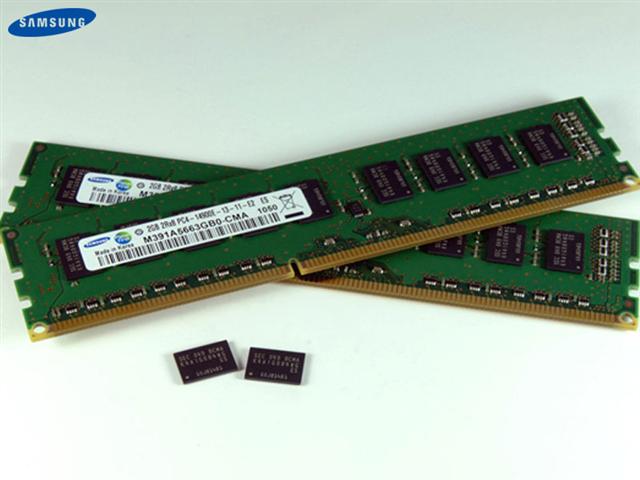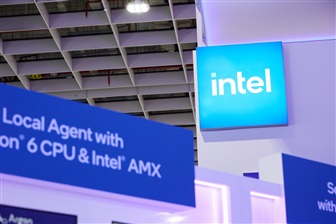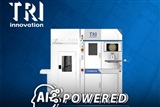
Samsung Electronics has completed development of what it calls the industry's first DDR4 DRAM module, using 30nm class process technology.
The new DDR4 DRAM module can achieve data transfer rates of 2.133 gigabits per second (Gbps)at 1.2V, compared to 1.35V and 1.5V DDR3 DRAM at an equivalent 30nm-class process technology, with speeds of up to 1.6Gbps. When applied to a notebook, it reduces power consumption by 40 percent compared to a 1.5VDDR3 module, the vendor said.
Samsung revealed that in late December, it provided 1.2V 2GB DDR4 unbuffered dual in-line memory modules (UDIMM) to a controller maker for testing. The company said it now plans to work closely with a number of server makers to help insure completion of JEDEC standardization of DDR4 technologies in the second half of 2011.

Samsung HKMG DDR5
Samsung Electronics has expanded its DDR5 DRAM memory portfolio with a 512GB DDR5 module...
Photo: Company

Nvidia GeForce RTX 30 series GPUs
Nvidia's GeForce RTX 30 series GPUs are powered by the company's Ampere architecture. The...
Photo: Company

Apple HomePod mini
Apple's HomePod mini is the newest addition to the HomePod family. At just 3.3 inches tall,...
Photo: Company

Apple 13-inch MacBook Pro with Magic Keyboard
Apple has updated the 13-inch MacBook Pro with the new Magic Keyboard for an improved typing...
Photo: Company

Apple iPad Pros
Apple's new iPad Pros comes with the latest A12Z Bionic chip, an ultra-wide camera, studio-quality...
Photo: Company
- Musk says chip capacity will decide winner of AI race (Mar 21) - EE Times
- Google taps MediaTek for cheaper AI chips (Mar 17) - The Information
- European project gets $260 million for HPC chip sovereignty (Mar 6) - EE Times
- The trouble with MAGA's chipmaking dreams (Mar 3) - Economist
- Automotive chips: Gloom and doom or boom by 2030? (Feb 14) - EE Times
- Deepseek is more Wall Street than Silicon Valley (Feb 3) - Culpium, by Tim Culpan
- Tech CEOs try to reassure Wall Street after DeepSeek shock (Jan 30) - Wall Street Journal
- TSMC to make chips for cryptominer Bitdeer at new US fab (Jan 17) - Culpium, by Tim Culpan
![]() Exclusive: Infineon GaN chief on strategy, market gains after TSMC's exit
Exclusive: Infineon GaN chief on strategy, market gains after TSMC's exitInfineon Technologies' acquisition of GaN Systems has bolstered its wide bandgap semiconductor portfolio...
![]() Trump and Intel
Trump and IntelHowever, Intel's continued financial struggles led to the replacement of former CEO Pat Gelsinger with Lip-Bu Tan, who recently found himself a target...

Humanoid robotics, 2025 - Market trends, critical components & strategic shifts
DIGITIMES believes that due to the high cost of hardware components, humanoid robots can hardly see rapid adoption across various...

Innolux deployments with Pioneer acquisition
Innolux to invest NT$33.7 billion to acquire Pioneer, a move driven by three key strategic initiatives to expand its automotive...

South Korea panel maker business status
South Korea's two major panel makers have made progress in restructuring their businesses and will continue to strengthen OLED...






